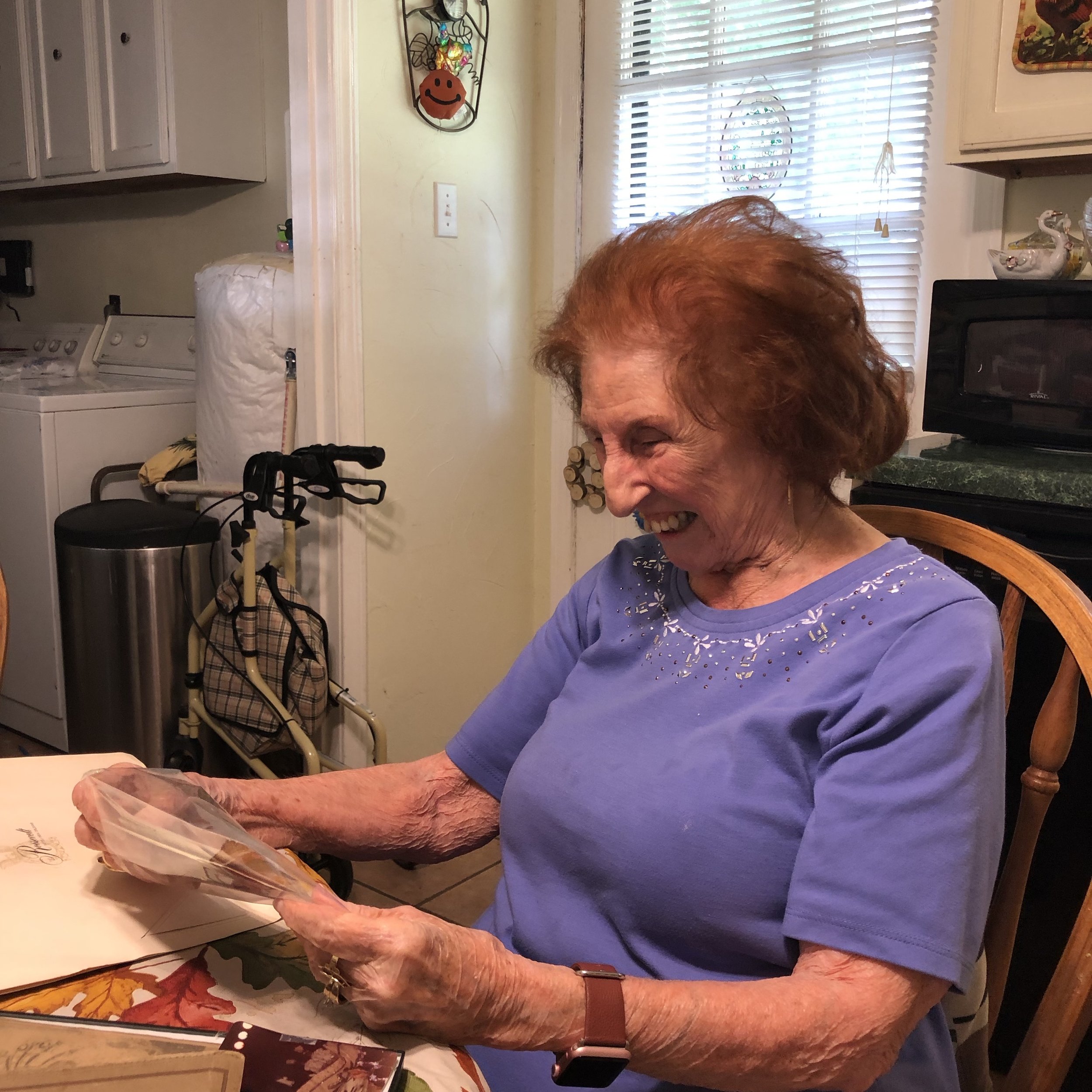Italian POW Wife Recalls Unique Romance
by Elisa M. Speranza & Linda DiMarzio Massicot
“It all started with me,” said Marguerite Graffagnini Maranto. A spry 92-years-young, she spoke in the kitchen of her Hammond, LA home. Her eyes twinkled as she told the story of how she met her husband Mario back in 1944, when she was 17.
“I was the secretary of the Ladies Auxiliary Club at the Italian Hall on Esplanade,” she said. “A military man came over and wanted me to get some Italian girls so they could dance with the boys, the prisoners of war, just like the USO.”
Italy had surrendered in September of 1943, after the Axis defeat in North Africa. 51,000 Italian POWs (along with 380,000 Germans) were brought to the United States as captives. About 1000 were eventually held at Jackson Barracks in New Orleans’ Lower Ninth Ward.
“I called around and we got 50 girls. They came to get us and here we were, jumping on the truck—that was hard to do—we were all dressed up. Then we went there (to the Barracks) and there were ALL THESE MEN! They had American uniforms and the only difference was they had a patch with ‘ITALY’ on the sleeve.”
There were musicians among the prisoners, and they played Italian songs and dance music. “We’d be dancing with one, then we’d turn around and dance with another. It was fun!”
That Saturday night, Marguerite’s older sister Rosalie met a POW who could speak English. He told her the POWs were being taken to Pontchartrain Beach the next day and invited her to join him. “She said yes, but of course, my mother wouldn’t let her go alone and she made me go with her,” Marguerite said.
When they got to the beach the next day, Marguerite and her sister went swimming and Marguerite suddenly bumped into a man, who started speaking to her in Italian. All she heard was “blah, blah, blah,” but since her sister spoke a little Italian, they all made themselves understood. Mario had noticed Marguerite the night before, but she hadn’t seen him. He was cooking so he didn’t get to dance. (The Italians were unhappy with the American food and convinced the Army to let them cook for themselves.)
“So that’s how we met. That’s how I met my husband.”
Since Italy had “co-belligerent” status, the POWs were allowed out to work, and to have dinner at people’s homes. The women went to the Barracks—always with a chaperone—on Sundays to visit with them. Marguerite’s mother Laura spoke Italian and would go along as an interpreter.
Mario was from Padua, “where Saint Anthony was from.” He was 20 when Marguerite met him. “He was it,” she said. After knowing each other about a year, “he told my mother he wanted to marry me and asked her to buy a ring for him.” Mario proposed to her in the day room at the Barracks, with her mother translating. “I was surprised—I was so innocent.”
When the war was over, the Geneva Convention required that all the Italian POWs be repatriated to Italy in December 1945. Marguerite went to say goodbye and Mario was already on the train, looking out the window. “I couldn’t reach—he was up, and I was down. So, somebody jumped out and lifted me up so I could kiss him goodbye. That was his last kiss in America at that time.”
Marguerite never worried about what would happen next. “We were really in love. He was either coming back or I was going there, one way or the other.”
Many of the other Jackson Barracks fiancés traveled by ship with chaperones to Italy, but Marguerite flew over on her own. “It was my first time on an airplane and my first time traveling out of New Orleans. I had just made 20 in May (1947) and got married a month later.”
After the wedding, the newlyweds traveled to Sicily to visit with Marguerite’s family. Eventually they made their way back to New Orleans to start their new life in America, though they made many trips back to Italy later.
The third of her parents’ ten children, Marguerite had a career working for the U.S. Treasury Department in New Orleans. Mario ran a sheet-rock contracting company. They built a house in New Orleans East and were very active in the Carnival krewes. Mario was the King of Jupiter in February 1976, and Marguerite was Queen of Venus. Mario passed away in 1993.
Marguerite remains a die-hard Saints fan and season ticket holder and is a member of the Red Hat Club. Though the floods that followed Hurricane Katrina destroyed their house along with Marguerite’s wedding photos, letters, and other mementos, she holds all the wonderful memories of her life with Mario in her heart.
NOTE: This article was published in the Fall 2019 edition of the Italian-American Digest. Sadly, Marguerite passed away in July 2021. Her bright spirit–and her inspirational story–will live on.
(c) 2020 Elisa M. Speranza

